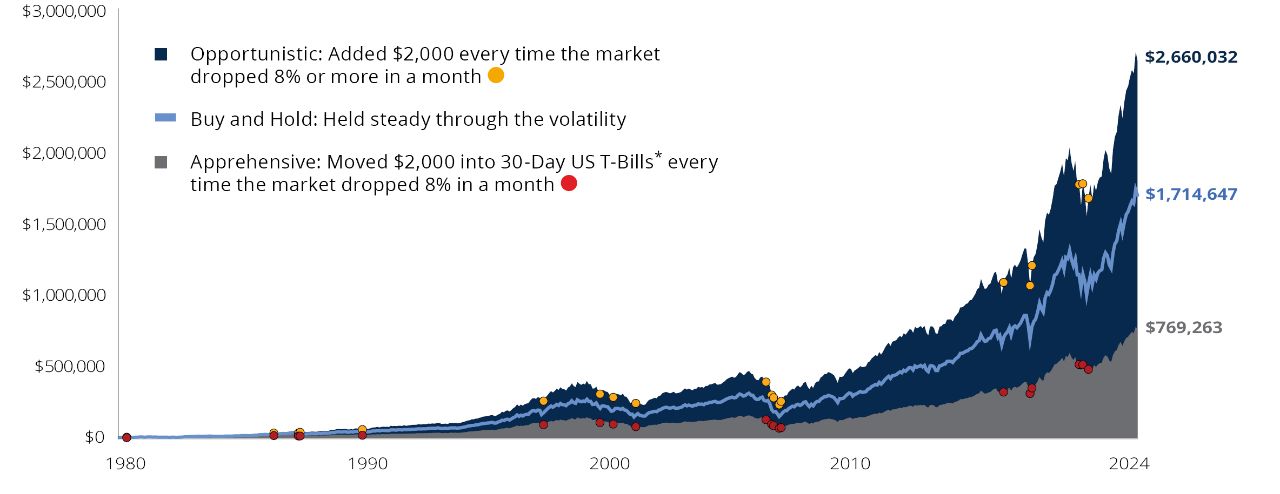In the aftermath of the Global Financial Crisis, stocks were the go-to investment option for more than a decade. We’d been riding a high for so long that we found ourselves caught off guard by the severe but brief bear market triggered by the COVID-19 pandemic. That bear—along with the 2022 bear market spurred by record inflation and interest-rate hikes—serves as an important reminder: Declining markets are a natural part of investing.
Though a down market can be alarming, it could actually be good news for long-term investors who are prepared and have a plan.
A Correction Isn’t a Crash
A market correction is just what the name implies—a 10% drop in stock prices that occurs when a market rally has gotten a little ahead of itself. The drop may seem a bit frightening at first. With the hefty equity- and bond-market losses of 2022 still fresh in investors’ minds, it’s understandable why most of us would feel a tinge of apprehension. But don’t panic.
Develop and Stick to a Sensible Plan
Timing the market is extremely difficult; some would even say it’s impossible. But that doesn’t stop many investors from shifting their investments into cash in an effort to avoid market downturns. Consequently, they may miss out on some of the market’s biggest gains while they sit on the sidelines.
Rather than trying to time the market, investors should focus on time in the market, allowing their investment returns to compound year after year. Don’t sell just because others are selling. If you sell your stocks after they drop in value, you may end up in worse shape than if you stayed invested.
When you look at quarterly returns for the stock market, it appears to be quite volatile. But viewed over a longer time period, the market appears relatively tranquil—an insight that may be forgotten amid short-term market swings. Buying and holding stocks for the long term may not be exciting, but it's historically been an effective strategy.
Be Greedy When Others Are Fearful
“The more [the market] goes down, the more I like to buy,” investor Warren Buffett said as he bought stocks during a sell-off in 2014.1 Likewise, you can take advantage of volatility by buying quality stocks at a discount if this strategy makes sense based on your investment time horizon and risk profile. Buying stocks when they’re attractively priced could help enhance the long-term growth potential of your portfolio.
FIGURE 1 shows the effects of three different historical approaches to volatility. Each assumes $10,000 invested on 12/31/79 into the S&P 500 Index2 and no taxes or transaction costs. The opportunistic investor added $2,000 in stocks each time the market dropped 8% or more in a month, the buy-and-hold investor made no portfolio changes, and the apprehensive investor shifted assets into cash in the face of volatility. Ultimately, the opportunistic investor had a return that was significantly higher by December 2024.






